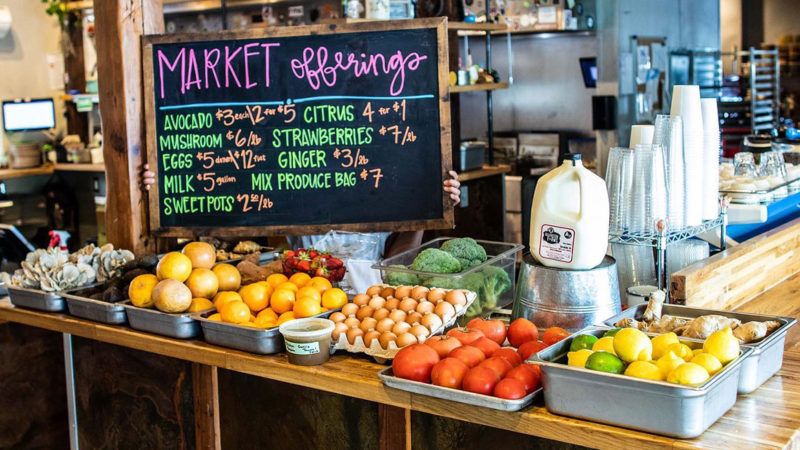Governments Are Cutting Red Tape To Keep Americans Fed
Regulators ought to take a scalpel to the many burdensome rules still on the books.

As federal, state, and local governments respond to the COVID-19 pandemic, some are loosening rules to ensure consumers can get adequate sustenance.
Last month, the U.S. Department of Agriculture and the Food and Drug Administration (FDA) temporarily relaxed food-labeling rules to allow some companies to sell things that are not labeled for individual sale. That includes foods such as those that had been labeled for sale to a restaurant, hotel, or university food service provider, which typically don't contain the Nutrition Facts labels that are required to appear on items sold directly to consumers. That has given states and cities leeway to allow the restaurants they regulate to sell groceries that don't comply with some current FDA labeling rules. Many states have also relaxed liquor laws during the pandemic by allowing restaurants to offer to-go alcohol with takeout food.
In March, the Trump administration suspended enforcement of rules that set the maximum hours that truck drivers who are delivering key supplies, including food, may work without a break. While that's a smart approach given the supply-chain issues the food system is experiencing, it came as many restaurants—including those at highway rest stops—were limiting hours or closing. And many restaurants that have remained open now offer drive-thru service only, which can prevent semitruck drivers from accessing them. In April, California's state transportation department, Caltrans, decided to allow food trucks that obtain a free permit to park at rest stops in the state and sell food to truck drivers and others there. Some California counties, it turns out, have no rest stops—but at least regulators appear to be trying.
Cutting red tape temporarily during a nationwide emergency is prudent. But easing the regulatory burden on food businesses doesn't make sense only during a crisis. Will Californians be harmed if the state continues to allow food trucks to serve truckers? Nope. Will people be harmed if restaurants can sell groceries or fill to-go alcohol orders? Probably not.
Rolling back regulations supports both short-term goals (making sure people have sufficient access to food) and long-term ones (facilitating commerce and allowing the economy to recover). Making many of these relaxed rules permanent is a start, but taking a scalpel to the many, many burdensome rules still on the books must be the next step.


Show Comments (20)